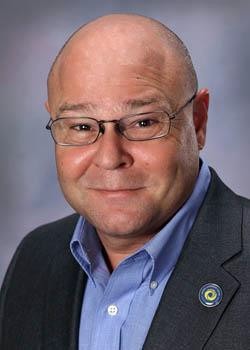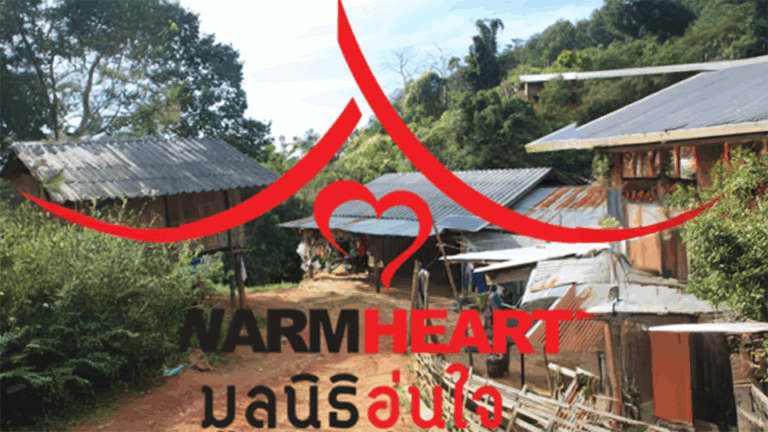Author Note
Darrell A. Hamlin, Guest Editor. Associate Professor, Department of Criminal Justice, Fort Hays State University.
Correspondence regarding this article should be directed to Dr. Darrell Hamlin, 600 Park Street, Hays, KS 67601. Phone: (785) 628-5668. Email: dahamlin@fhsu.edu.
As a member of the Editorial Board of the eJournal of Public Affairs, I recall the earliest conversations the board had several years ago about the mission of the journal. The vision was strengthened by a variety of perspectives, offered by accomplished, civic-minded individuals, most of us connected professionally to higher education. Despite the range of experience and achievement represented on the board, a general consensus of hope and purpose coalesced around several objectives. Board members appreciated the need for a journal that could use the technological possibilities of an online format to broaden the conversation about public life, yet do so while sustaining the peer-reviewed standard necessary to validate academic rigor in the contribution of original research. Another goal was to expand the reach and depth of public conversation to include topics and voices that are underrepresented in traditional academic journals. And there was a sense of excitement that the web of connections that relate public life to the work and purposes of higher education could be more fully explored by including agendas and critical expression beyond quantitative and qualitative design. In short, the vision was energized by a desire to offer a publication that had what traditional academic journals had always presented – and also more of what such journals often do not provide.
We offer today a special issue of the eJournal that is intended to tap into the multidisciplinary energy and vision of this publication, by focusing on a topic that has the potential to be a “game changer” in higher education: the social entrepreneurship movement. In his recent book, Social Entrepreneurship: A Grassroots Revolution, Keith Campbell argues that the movement is, in some ways, largely uncomplicated. “It involves people who care about some category of people, stepping forward to make a difference. That’s the revolution.” Without doubt, this simple definition envelopes almost all social entrepreneurs, certainly as they understand themselves. Yet this issue aims to provide examples of the ideal – caring for others, turning a profit, making a difference – in order to illuminate the complexities of motivations, engagement, and the contested landscape of definition.
We start with the recognition that each enterprise of social entrepreneurship is a story, grounded in individual purpose, advancing a mission where financial profit is understood to be instrumental to some larger purpose. But where traditional academic journals might confine their approach to academic debates, precise measurements and theoretical discourse, we aim to bring further insight to the connection with higher education by presenting stories of social entrepreneurship that feature the members of the academic community as players, not just researchers. Current and retired faculty, graduate students and undergraduates, the partners they find in the community – the stories you’ll encounter in this issue are often driven by individuals who have launched themselves from a base of formal education or academic identity into the world beyond the ivy. It has been our hope and purpose to allow these actors to tell their own stories, so far as possible, in their own words, because their moments of success and setback are lessons from which we can all learn. We also have aimed to provide the theoretical and critical perspective that academics are trained to deploy as a deeper mode of understanding the effectiveness of such efforts.
Our first contributor, Amy C. Jordan from the University of Arkansas-Fort Smith, sets the context with an editorial note reminding us how much transition higher education operates within today. Shrinking public budgets and shifting student expectations are motivating institutions to re-calibrate mission, curricula and operations. The growth of online degree programs certainly expands the base of potential students, but the flip-side is that many of those “non-traditional” students are seeking educational experiences that train them toward the meaning of their educations. Operationally, public institutions will not be able to rely solely on raising tuition and being subsidized by the legislature. Partnerships with the non- profit and for-profit sectors will have to be generated to meet the demand. The colleges and universities that succeed in this environment will be the ones that provide discerning educational consumers a menu of learning that is rich with engagement, opportunity, and a momentum of purpose in the world.
One example of such partnership is described in the article by Brandon W. Kliewer, Elizabeth Quinter, and Sarah Neat, respectively a faculty member, a community partner and a student who present individual perspective on a Florida Gulf Coast University initiative to connect the classroom with “impact entrepreneurship” in the community. The authors illustrate that the concept of reciprocity in partnership is a key feature behind the success of any attempt to aim formal theory into the practical arena of entrepreneurship in the community. We are pleased to offer this article as a research contribution that emerges from – and speaks to the need for — innovative relationships arranged around both educational and entrepreneurial objectives.
In many ways the heart and soul of this issue is the interview I was privileged to conduct with Michael Shafer, founder and director of Warm Heart, a grassroots effort aiming itself through micro-enterprise, education and healthcare initiatives in rural Thailand. Describing his own experiences with social entrepreneurship, Shafer presents the challenge of even trying to define what the concept means – a bedeviling problem for both practitioners in the field and for academics who attempt to study the effectiveness of the enterprise. Indeed, Shafer points out that the success of his own organization began with “systematically throwing out” all of the assumptions he carried into the work. Shafer also explores the connections between the values, goals and vocabulary of traditional entrepreneurial activity and the underlying characteristics of successful social enterprise. Another important feature from this interview is how Shafer relates the reality of trying to “teach” social entrepreneurship as formal training for engagement on social problems, a part of the conversation that program designers, faculty and students will find insightful.
Then our issue pushes into deeper territory with this interview, by inviting a set of responses from the academic community that we believe, in themselves, are an innovation on the traditional response essay. Cecilia Orphan, a graduate student at Penn with deep roots in the American Democracy Project, anchors the response by doing what dedicated academics do: she explores the connective tissue of the theoretical literature that runs throughout Shafer’s interview, underscoring the importance of the objectives yet pushing back on implied assumptions and measureable effectiveness. Ken Gilmore, a former graduate student of Michael Shafer who is now well down the road of his own career in higher education at Guilford College, provides a more personal reflection. Gilmore begins with his emotional response to seeing his teacher and mentor speaking from a base of operations on the other side of the planet, wondering what causes a political scientist at the height of his academic career to “get out of the boat” and venture onto the riskier path of development enterprise. But Gilmore also challenges academics who stay in the more secure environment of the institution to turn the critical lens on themselves and the effectiveness of their own efforts in higher education. Finally, an even more non-traditional response comes from an undergraduate at Southwestern University, Anne Bannister, who offers a photo story on her experience working with Shafer as a communications intern for Warm Heart in 2012. Bannister’s moving photographs are also woven into the video interview itself, adding visual and emotional texture to Shafer’s expression, showing our readers – and viewers! – the people and the place that Warm Heart works to serve with its entrepreneurial efforts.
Shafer’s interview provides another critical lens for this issue, because the ideas and insights he offers are an instructive overlay for the three video stories of social entrepreneurship we present from the community of Springfield, Missouri. An innovative retail outlet, an agricultural enterprise, a local chocolate factory – we hope you enjoy and draw lessons from the enterprising and purposeful efforts of citizens at and around Missouri State University. The stories can stand alone or work together as case studies or discussion starters in the classroom.
Finally, we are pleased to offer Claire Wilker’s review of Learning to Change the World, a book that analyzes the One Laptop Per Child effort that began in 2005. As Wilker’s review points out, the mixed and inconclusive results of the project can be powerfully balanced against the efforts the project leaders have taken to provide their own insight into the successes and disappointments of the work. The review is yet another example of what we hope is a simple takeaway from this issue: there is much to learn from social entrepreneurs who critically examine their enterprises and offer the lessons to the rest of us.
My work as Guest Editor for this special issue on social entrepreneurs has been a privilege and a deeply rewarding learning experience, even as my role was to connect you to your own learning. Our hope is that the materials from this issue will not only enrich your own understanding of this growing and important movement, particularly in its implications for higher education, but that the materials can also become instructional tools as you use the ideas to challenge your students, colleagues and community partners to innovate around recognizing social need and solving problems. We do not offer any definitive statement or conceptual breakthrough on this topic as much as we invite you into the conversation, the innovation and the work.
Author Biography

Darrell A. Hamlin is Assistant Professor of Justice Studies and a Senior Fellow at the Center for Civic Leadership at Fort Hays State University. He holds an M.A. and Ph.D. in Political Science from Rutgers University, and a B.A. in American Studies from Baylor University. Previously on the faculty at Spring Hill College, his scholarship, teaching, and service have received awards, and he has been the recipient of grants for research and for educational development. In 2008, Hamlin founded Civic Monkey, LLC. As a writer, educator, consultant and certified leadership coach, he has focused on civic renewal, expanded narratives of public life, and working with individuals and organizations to find their purpose in public life. His current book project is Carrying the Torch: Moving from Private Grief to Public Action, with Curt and Christie Brungardt.

